Gold Recognized Businesses

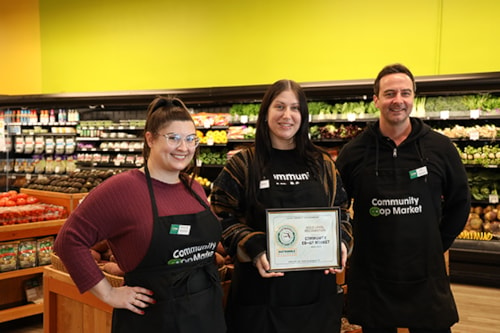
Community Coop Market
Community Coop Market's (CCM's) mission is to build a strong, local community and to ensure that everyone has access to healthy, delicious food. We are proud of the sustainability programs we have implemented, and we are committed to supporting local businesses, fighting food insecurity in our community, and being an equitable employer. We offer tons of locally produced options for food and wellness products, and we frequently act as a launch pad for local businesses to introduce their products to our community. Food waste is a huge issue in the grocery industry, but large, regular donations to local food banks and in-house programs to repurpose food before it’s unsellable helps us to ensure that we are doing our part in keeping good food out of landfills.
Highlights
- We have several recycling programs in our store: cardboard and paper, toner and ink cartridges, glasses, and cell phones.
- We offer the largest bulk selection in town (from food to body care!), allowing customers to eliminate packaging waste by bringing their own containers if they choose.
- We installed energy efficient coolers and freezers that automatically turn off their lights after a period of inactivity and install LED light fixtures whenever our old light fixtures break.
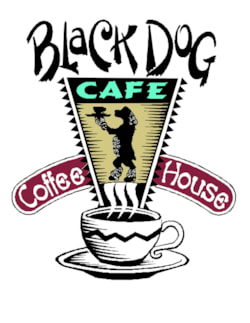
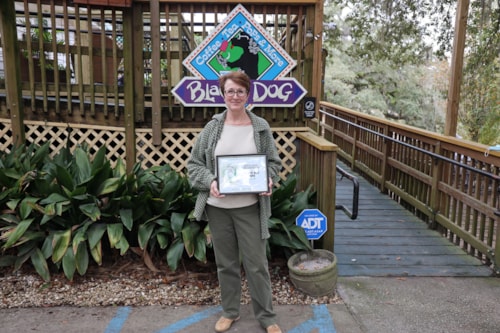
Black Dog Café
"At Black Dog Café, we are committed to being responsible stewards of the environment. As a local coffee shop devoted to our community, we take our role in ethical sourcing of our products as well as supporting local businesses seriously and hope, through our actions and words, to promote a more conscious community regarding foods, waste, and local sourcing."
Highlights
- Use ethically sourced coffees roasted sustainably by Batdorf & Bronson coffee roasters
- Compost all coffee grounds and compostable food waste
- Raise bees and use only locally-sourced honey in shop
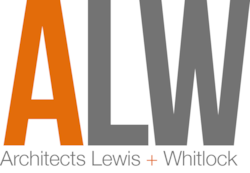

Architects Lewis + Whitlock (ALW)
"At ALW, we are committed to helping preserve, protect, and enhance the environment through our LEED design and sustainability commitments. In our role as creators of the built environment, it is incumbent upon our team of design professionals to make sustainability an innate part of our daily lives. Through adopting sustainable business practices over the last two decades, our office has seen improvements to our bottom line in both the traditional and environmental sense. The cost savings, improved staff health benefits, and increased availability of eco-conscientious products and services that have more than off-set the costs of integration of sustainability initiatives. We are committed to continuing the journey toward a more sustainable office environment." – Cam Whitlock, AIA, LEED AP BD+C, ALW Principal-In-Charge
Highlights
- Installed an electric vehicle charging station on site for employees with electric vehicles
- Established the ALW Green Team consisting of several staff members from varying levels of the company. The Green Team is charged with expanding sustainability actions within ALW and serves as the steward of the AWL Sustainability Action Plan.
- Created the ALW Sustainability Action Plan, an internal living document that establishes organizational goals and action items, assigns specific responsibilities to team members, and sets target dates for completion.
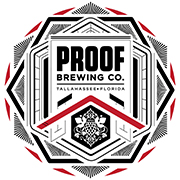
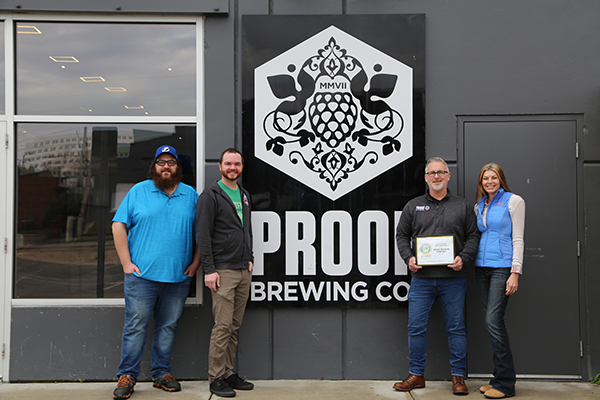
Proof Brewing Co.
Since kickstarting the Tallahassee brewing scene in 2012, we have stood by an ethos of being as sustainable and efficient a brewery as possible. We are constantly innovating and evolving our business to help provide a greener future for all. We pride ourselves on being an industry leader and are proud of what our team has accomplished over the years.
Highlights
- First Craft Brewery in Florida to implement Earthly Lab’s CiCi CO2 recapture system to capture and recycle carbon produced during our brewing process - Equivalent to 1500 trees worth of CO2.
- We donate our spent grain to local farmers for livestock feed thereby diverting over half a million pounds annually from landfills
- We use fully recyclable aluminum and cardboard packaging, Closed-loop steam system for water recapture. We substantially reduce effluent waste through use of a centrifuge and our grain silo increases material efficiencies and reducing the amount of deliveries.